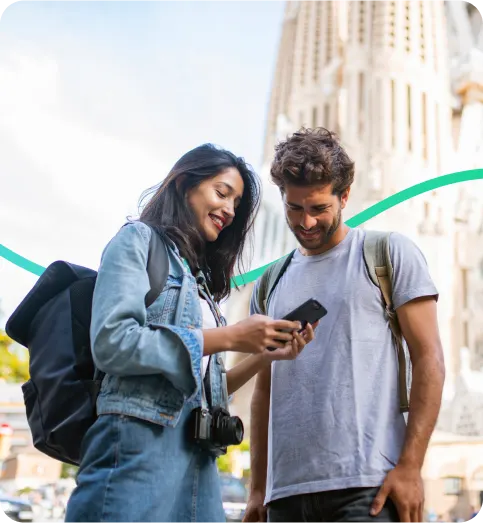Rwanda eVisa (Visitors Visa)
Prices starting from $69.99


Find the right Rwanda visa for your trip. Apply online with iVisa and skip the hassle.
How to apply for your Rwanda eVisa with iVisa
Answer a few simple questions, upload your documents, see when you’ll get your visa, and pay using our secure portal.
You can save your progress and come back anytime. Most people finish the application in under 20 minutes.
We’ll guide you through any unclear questions during the application process.
The Rwanda visa system is known for being difficult to navigate – your photo must be
the right size, and your passport scan must be clear.
Don’t worry – we review your whole application to catch anything that might cause delays. One of our experts checks everything for errors or missing information to make sure it’s ready to go. This review is quick but thorough.
We’re not the government, but we submit your application to them and are here for you along the way if there are any problems.
We’ll email your approved visa and let you know how to use it for your trip.

The Rwanda Visitors Visa (V-Class) is designed for travelers visiting Rwanda for tourism, family visits, business exploration, medical treatment, and other short-term non-work activities.
With this visa, you can:
The Visitors Visa does not allow you to engage in paid employment while in Rwanda. For employment or long-term study, you will need to apply for a different visa directly through the Rwanda Directorate General of Immigration and Emigration.
The Visitor’s Visa is typically valid for 30 days (single-entry), with 90-day multiple-entry options available for certain sub-categories, such as V1 (holiday/tourist), V8 (group tourism), and V11 (East Africa Tourist Visa).
The Rwanda East Africa Tourist eVisa (V11) is designed for travelers seeking seamless travel across Rwanda, Kenya, and Uganda with a single permit. It covers short-term tourism and leisure travel across all three countries.
With this eVisa, you can:
The East Africa Tourist eVisa does not allow you to work, study, or engage in paid activities. For employment, study programs, or long-term stays, you will need to apply for a different visa directly through the government of the country where you plan to stay.
The East Africa Tourist eVisa is valid for 90 days, allows multiple entries, and permits travel between Rwanda, Uganda, and Kenya during its validity period. You must first enter the country that issued your eVisa, such as Rwanda, before traveling to the others.
Purpose: Short transit (less than 72 hours) through Rwanda, including due to delays
Validity: Up to 72 hours
Entries: Single
Extension: May be extended in exceptional circumstances
Unfortunately, we don’t currently offer this visa*
Purpose: Academic studies or research at recognized Rwandan institutions
Validity**: 1 year, renewable until program completion
Entries: Multiple
Extension: Renewable yearly
Unfortunately, we don’t currently offer this visa*
Purpose: Facilitate foreign investment in Rwanda (sector-specific)
Validity: Up to 2 years (new); up to 5 years (renewal)
Entries: Multiple
Extension: Renewable
Unfortunately, we don’t currently offer this visa*
Purpose: Operate as an entrepreneur (mining, agriculture, IT, logistics, hospitality, other sectors)
Validity: Up to 2 years (new); up to 5 years (renewal)
Entries: Multiple
Extension: Renewable
Unfortunately, we don’t currently offer this visa*
Purpose: For foreigners employed in Rwanda (occupations‑on‑demand list or employee-sponsored)
Validity: Typically up to 3 years (H1 Skilled Worker); shorter for assignments (Q1 fly‑in/fly‑out)
Entries: Multiple
Extension: Renewable
Unfortunately, we don’t currently offer this visa*
Purpose: For accredited diplomats and official mission staff
Validity: 30 days (single); 2 years (multiple accreditation)
Entries: Single (official visit) or multiple (accredited diplomat)
Extension: Renewable
Unfortunately, we don’t currently offer this visa*
Purpose: For spouses, children, and parents of permit holders
Validity: Matches principal’s permit duration
Entries: Multiple
Extension: Renewable alongside the principal permit
Unfortunately, we don’t currently offer this visa*
Applying for a visa on your own can be confusing and time-consuming. iVisa simplifies the process, reduces errors, and gives you peace of mind
